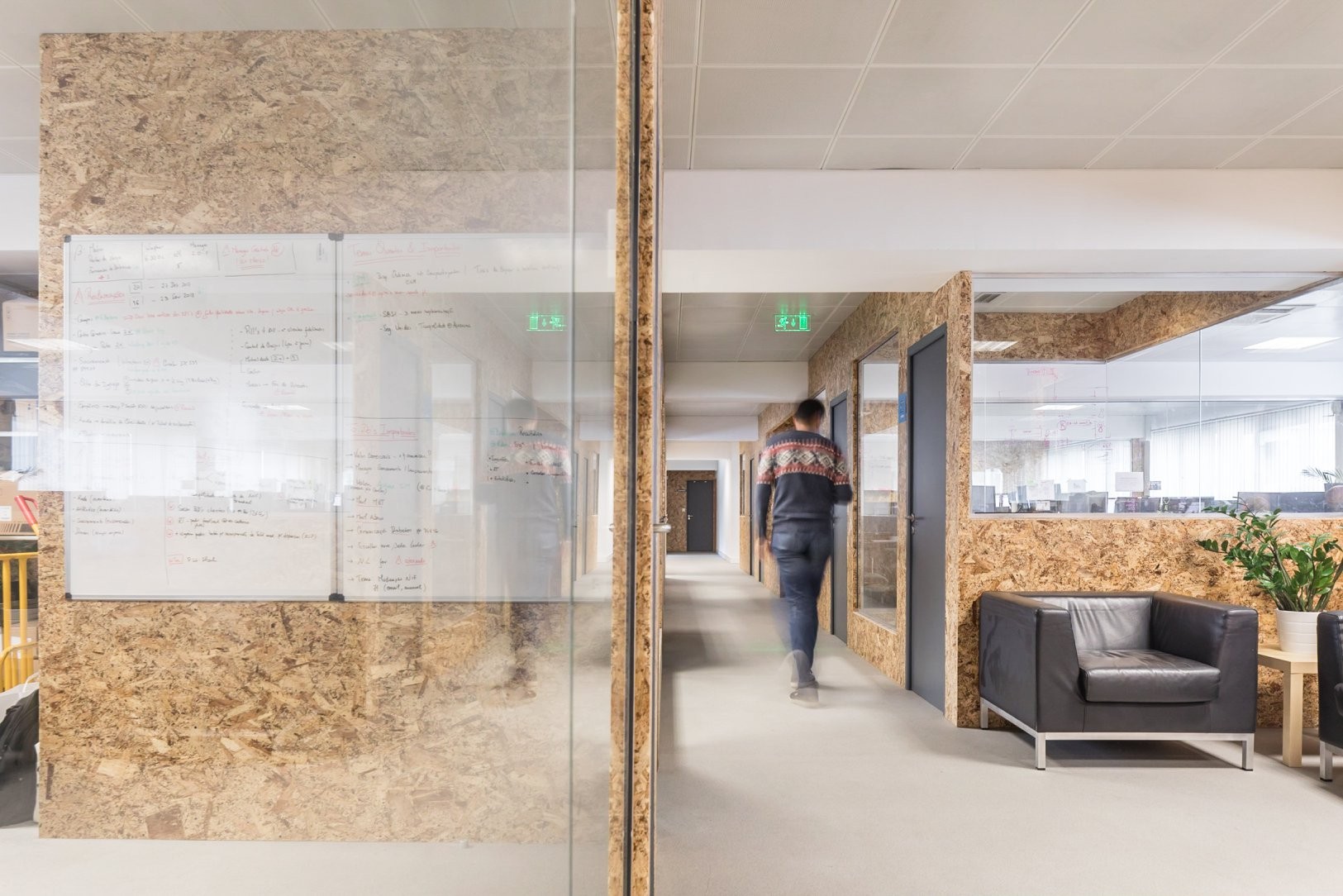I love this image. It's a simple, yet intelligent, way to explain how we all see the world - with a horn right in the middle of our landscape. This horn represents our beliefs, our concerns and our hopes. Which, as good as they can be, are inevitably blocking our view.

I recently gave a talk at Premium Minds with the title "Giving and receiving feedback". While waiting for the room to settle down, I had this image1 on display. This was my way of reminding everyone that whenever we communicate with each other, there's a horn in front of our eyes blocking part of our perspective. Bearing that in mind is of the uttermost importance when giving and receiving feedback. This is also true when giving talks.
I started the talk with a fundamental question.
Why give feedback?
If you google 'why give feedback' you will get around 687.000.000 results. That's a lot of opinions on the theme. Many of the first entries are articles proposing reasons why feedback is so important and how it affects people's productivity. I've read most of them and they have valuable information. I decided not to start with them during my talk. I prefered to go for the common ground that everyone could relate to. So, I asked who in the room enjoyed receiving feedback, even if it was negative feedback2. There was a show of hands. Everyone. Then I asked who in the room gave regular feedback. A few shy hands were raised. Almost no one.
So why give feedback? Because people want it and they are not getting it. Obvious! Maybe not. Why do we want feedback?
The feedback loop
According to Wikipedia feedback as a word was born in the electronics world. It refers to the action of feeding back the signal from output to input.
We have feedback loops in systems all around nature. The body is a great example. I'm only able to write this post while sitting at the freezing Braga public library3 because my skin nerve cells send information to the temperature-regulatory control center in my brain, who processes the information and directs my blood vessels to constrict so that heat is conserved. This feedback loop is critical to maintain homeostasis - upon which we depend to survive! I believe, and this is my horn, that giving and receiving feedback is of paramount importance to maintain emotional homeostasis.
The still-face experiment
One day, during an annual evaluation meeting, one of our software engineers shared that he had felt extremely anxious during the first three months of a new project because he didn't get any feedback about his work. The moment the software architect shared with him his opinion about what he had been doing, even if it wasn't all positive, had been a great relief.
I think he had the same experience babies go through in the still-face experiment. See for yourself: https://youtu.be/Hh_fW69QkqY
I don't need to be a baby to experience this level of distress. Just like our software engineer, I just need those that matter to me to not give me any feedback. Of course that, as an adult, I became a professional at hiding my emotions, but underneath the mask, I too start to cry and kick.
You might be asking yourself: Isn't feedback all about correcting and improving one's behavior? Why are you talking about emotion homeostasis? Does that even exist?
If you weren't asking that, sorry for the inception. But I think it's a valid question. The feedback loop in communication exists to correct and adapt behaviors. However, I think that's just the superficial layer of feedback; there is something much more important going on at a deeper level.
Project Aristotle - how to build the perfect team
You might have read about Project Aristotle, the Google project to find the answer to the question: "What makes a team effective at Google?". If you haven't, start with the New York Times Magazine article. It's worth it. Of all the key dynamics of effective teams identified by researchers, psychological safety was by far the most relevant to me:
"The Google researchers found that individuals on teams with higher psychological safety are less likely to leave Google, they're more likely to harness the power of diverse ideas from their teammates, they bring in more revenue, and they're rated as effective twice as often by executives." in re:Work
Amy Edmondson, an organizational behavioral scientist from Harvard, defined team psychological safety as "a shared belief held by members of a team that the team is safe for interpersonal risk taking". You can watch her explain it at TEDx
So, why did I bring up the theme of psychological safety in a talk about feedback? Because my experience tells me they go hand by hand.
When I share with someone what I'm feeling due to their actions, whether it's great or messy, I'm nurturing the psychological safety between us. I'm taking off the mask and showing there is no secret agenda. And, when I feel safer, it becomes easier to share what I feel. There is a positive feedback loop between psychological safety and feedback.
I believe this feedback loop is more important than the improvement of behaviour. If we foster a culture of feedback, we will feel safer to make mistakes, because we will rapidly know when we have made them. There is nothing worse than learning I've done something wrong and no one in the room warned me. It feels really lonely. It also feels that making mistakes is not ok, and as the proverb says: to err is human. Or as Ellen DeGeneres said and I agree:
"When you take risks you learn that there will be times when you succeed and there will be times when you fail, and both are equally important".
This is the ground where I stand when I talk about feedback. I believe that fostering a culture of feedback improves individual emotional homeostasis which, by itself, enhances team psychological safety, which in turn facilitates the fostering of such culture. That's the positive loop going on at a deeper level. The exact opposite is also true. No feedback leads to emotional instability which leads to psychological threat, which in turn diminishes the space for feedback.
The way to break the negative loop and start a positive one is always to start giving and asking for feedback. It will hurt at first, but in the long run, it will be healthier.
My talk also had a practical side. I shared these practical aspects of giving and receiving feedback:
Considerations when giving feedback
1. Start by asking if it is a good time to give feedback. This question allows the other to refuse if it's not a good time. Given a negative answer, you don't want to give feedback. The receiver will have a huge horn in front of the eyes blocking or morphing everything you have to say. Try again later.
2. Give feedback from an internal space of expecting the best of the other. Remember there is also a horn in your landscape when you observe the other. Respect the other and don't judge.
3. Focus on behaviours and their consequences. Be specific and take the focus out of judgements. Don't say things like "you are lazy" or "you suck".
4. It is as important to give positive feedback as negative feedback.
5. Offer positive feedback and... stop there. Don't use the sandwich strategy. Ever.
6. Don't build a castle; put up a thousand tents. A beautiful to say don't build up a huge feedback, give it frequently. One of our most senior software engineers started using this strategy of giving frequent feedback. After several honest conversations, he reported to me: "It really felt I was building castles with everyone. It's so much easier now."
7. Praise effort, not ability. When you praise effort, you are helping build resilience and determination. Praising ability might result in risk-aversion and heightened sensitivity to setbacks. For more on this topic read the interview with Carol Dweck, professor at Stanford University.
Considerations when receiving feedback
1. Listen 2. Clarify, if necessary 3. Say thank you
Receiving feedback is really simple, but really hard. When someone tells me something that doesn't correspond to my self-image, it threatens me. I will inevitably shoot out my claws (Wolverine style, but with words) and put up my defenses. My mind will race to find the loopholes in the arguments presented. If I give voice to those thoughts I will start an argument and simply lose the opportunity to see what is beyond my horn. If I just wanted to confirm what I already know, why bother?
Making an effort to just listen and acknowledge is a really powerful exercise. Reflecting on what I've just been told will inevitably bring me much more value than the feeling of winning an argument about me. I will also encourage the other to give me more feedback. He will know that it is safe to tell me what he thinks.
Practicing
I finished the talk with an exercise. I asked the audience to form trios, where each element of the trio had the opportunity to give feedback, to receive feedback and to observe the others giving and receiving feedback. The observer then had the opportunity to give feedback to the other two about what she witnessed. I learned this dynamic in a workshop with David L. Patient.
People formed trios with meaningful others. It was a great experience. Someone shared in the end:
"When I realized I was in a trio with two of my best friends I thought this was going to be a waste of time. Now I'm really surprised. I received really valuable feedback that I still have to process. I understood that we are always talking but we never really stop to give meaningful feedback to each other."
An organization is made of personal relationships. Feedback is a really important aspect of keeping them healthy. There are no shortcuts. 4
Footnotes
-
Unfortunately, I couldn't find the author. This image is retweeted all over the internet. ↩
-
Some time ago, I quit calling it reinforcing and correcting feedback. I work among a lot of skeptics, and it felt like I was tiptoeing. ↩
-
I love the library, but for a southern portuguese person, it could do with being much warmer. ↩
-
Special thanks to João Mendes and António Alvarez for reviewing the article before publication. ↩





